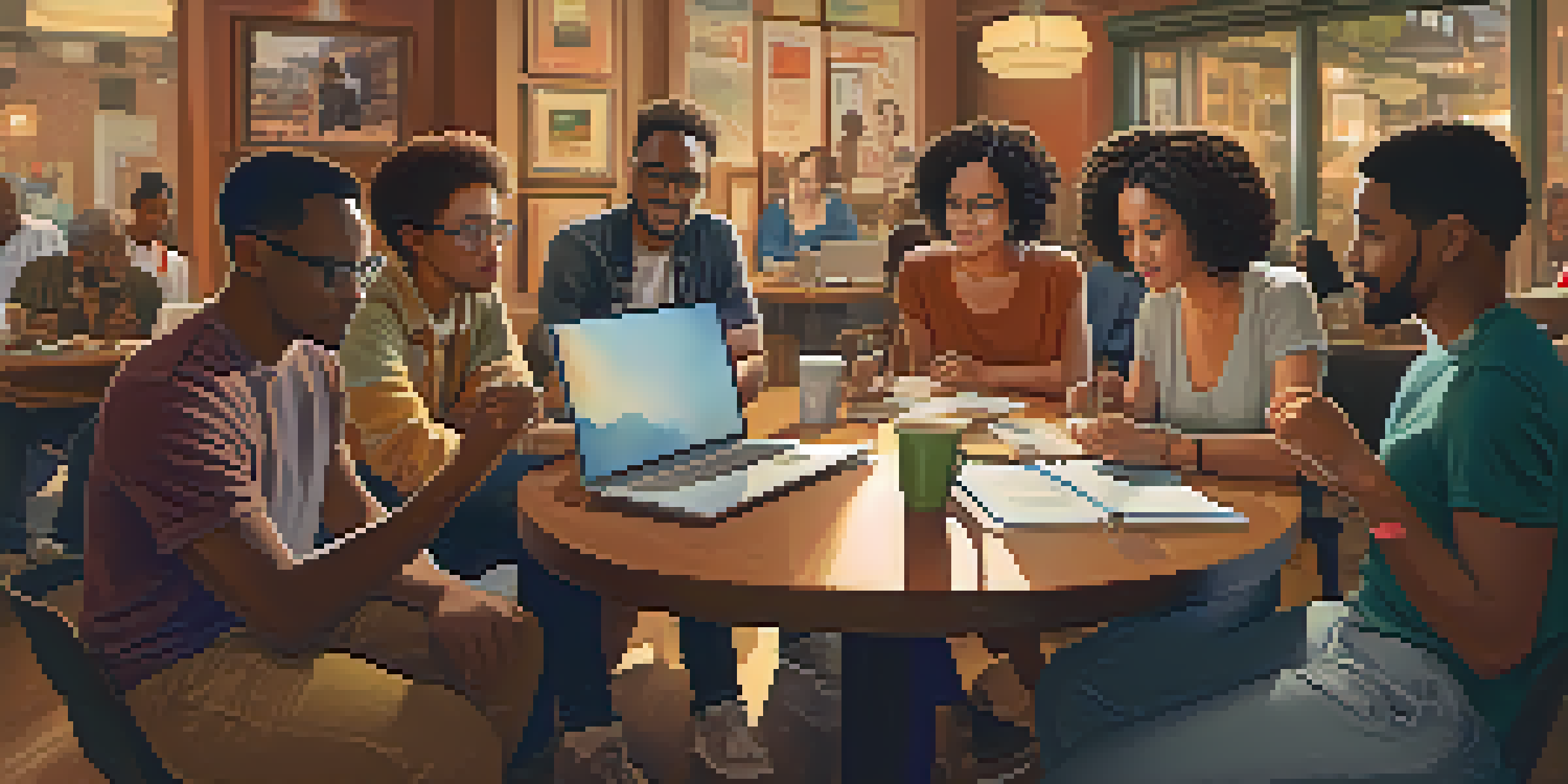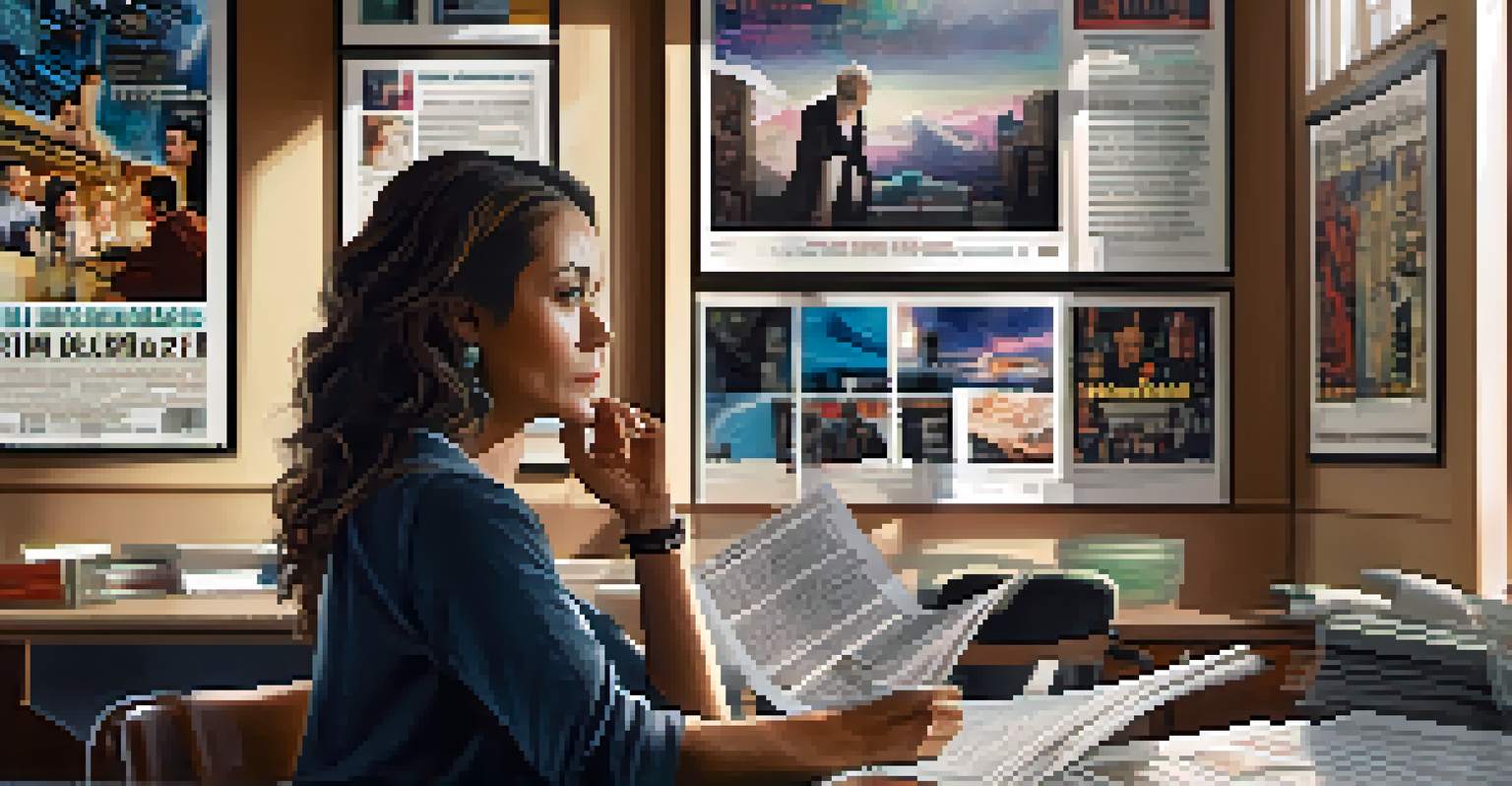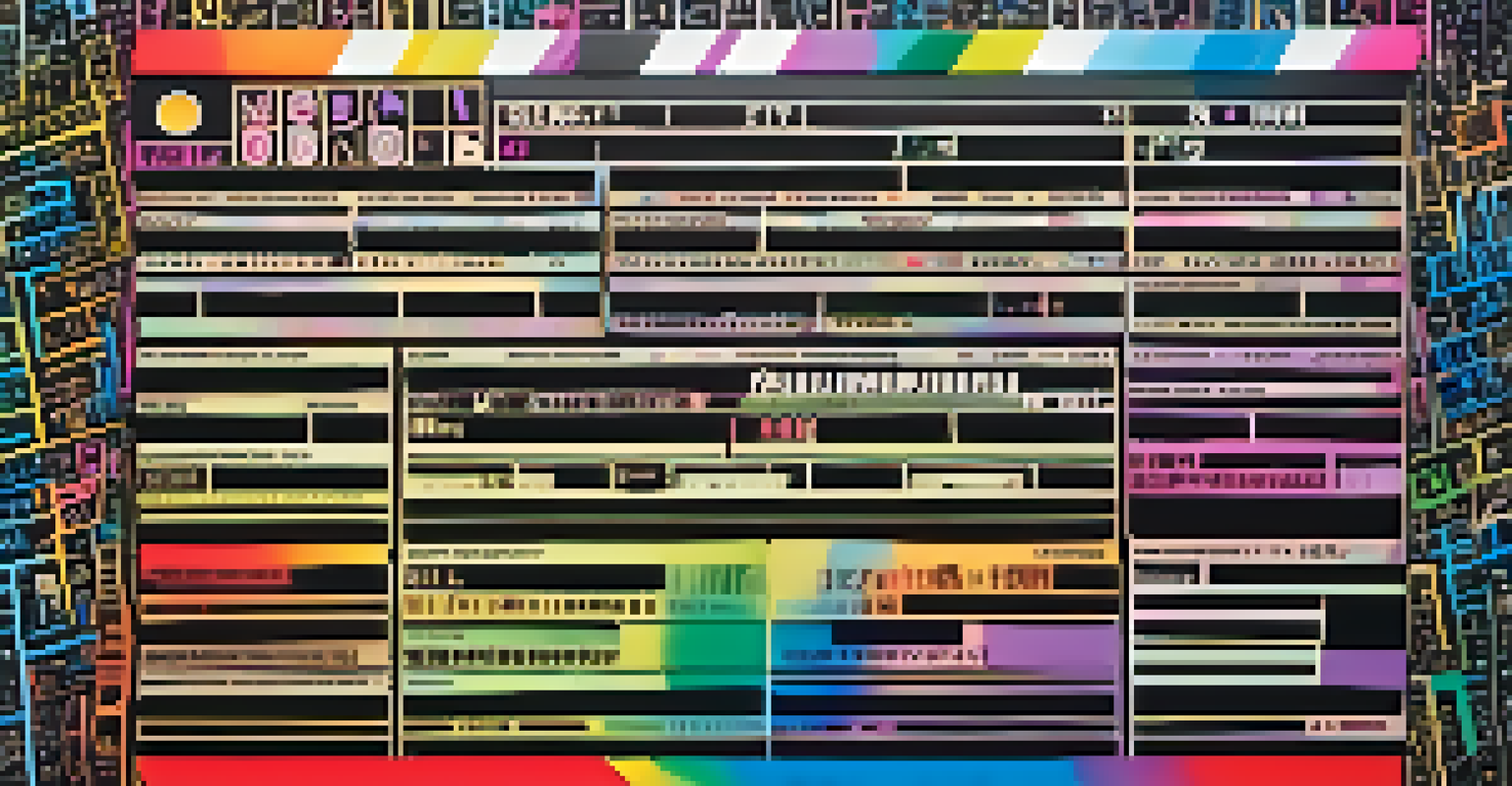Diversity in Screenwriting: Voices in Hollywood Today

The Changing Landscape of Hollywood Screenwriting
Hollywood has always been a melting pot of cultures and ideas, but in recent years, the screenwriting landscape has evolved dramatically. This shift reflects a growing recognition of the importance of diverse voices in storytelling. As more writers from varied backgrounds emerge, they bring unique perspectives that enrich the narratives we see on screen.
Diversity is being invited to the party; inclusion is being asked to dance.
Diversity in screenwriting isn't just a trend; it's becoming a necessity as audiences demand representation. This desire for authentic stories has prompted studios to seek out writers who can tell these experiences genuinely. As a result, we are witnessing a wave of fresh, innovative scripts that resonate with wider audiences.
With platforms like streaming services leading the charge, there’s more room than ever for diverse narratives to flourish. This evolution not only benefits audiences but also cultivates a more inclusive industry that values every voice. The change is palpable, and it's an exciting time for screenwriters from all walks of life.
Highlighting Underrepresented Voices in Film
Historically, screenwriting has been dominated by a narrow set of voices, often sidelining the stories of marginalized groups. However, there has been a concerted effort to shine a light on these underrepresented voices. Films that center on Black, Indigenous, and people of color (BIPOC) narratives are gaining traction, showcasing the richness of their experiences.

Consider films like 'Minari' or 'The Farewell', which offer poignant glimpses into the lives of immigrant families. These stories resonate deeply with audiences, proving that authenticity in storytelling can lead to universal appeal. By elevating these voices, Hollywood is not only enriching its content but also fostering empathy among viewers.
Diversity is Essential in Storytelling
The growing demand for authentic narratives has led Hollywood to embrace diverse voices, enriching the storytelling landscape.
The success of these films underscores the importance of inclusivity in storytelling. When diverse voices are given the opportunity to share their narratives, the result is a more vibrant and relatable cinema. This shift is crucial for the future of Hollywood, as it paves the way for a more equitable industry.
The Role of Women in Screenwriting Today
Women have long been underrepresented in the field of screenwriting, but recent years have seen a powerful push for gender equality. Today, female writers are breaking barriers and crafting compelling stories that reflect their unique experiences. This shift is significant not only for the women involved but for the industry as a whole.
The stories we tell literally make the world. They shape our beliefs, our values, and ultimately our actions.
Films like 'Promising Young Woman' and series such as 'The Queen's Gambit' highlight the talent and creativity of women screenwriters. These stories offer fresh perspectives that challenge traditional narratives, making them stand out in a crowded marketplace. As more women step into the spotlight, they inspire future generations of writers to share their voices.
The rise of female-led stories is reshaping the industry, leading to more nuanced and diverse portrayals of women on screen. This change is not just beneficial for representation; it enriches storytelling by allowing for a broader range of experiences. The continued push for gender equality in screenwriting promises an exciting future for Hollywood.
LGBTQ+ Representation in Screenwriting
LGBTQ+ representation in screenwriting has made significant strides over the years, leading to more authentic and nuanced portrayals. Writers from the LGBTQ+ community are telling their stories in ways that resonate with audiences, breaking stereotypes and challenges. This visibility is crucial for fostering acceptance and understanding in society.
Shows like 'Pose' and films such as 'Moonlight' have not only captivated audiences but have also provided a platform for LGBTQ+ voices. These narratives allow viewers to connect with characters on a deeper level, showcasing the diversity within the community. By highlighting authentic experiences, these stories challenge societal norms and promote inclusivity.
Women Are Shaping Screenwriting's Future
The rise of female screenwriters is breaking barriers and providing fresh perspectives that enhance representation in film.
As the demand for diverse narratives grows, so does the opportunity for LGBTQ+ writers to shape the industry's future. Their unique perspectives are invaluable, enriching the storytelling landscape and contributing to a broader understanding of human experiences. This ongoing evolution is vital for a more inclusive Hollywood.
Cultural Authenticity in Screenwriting
Cultural authenticity is paramount when it comes to telling stories that resonate with specific communities. Writers who draw from their own experiences often create more relatable and impactful narratives. This authenticity not only enriches the storytelling but also fosters a greater understanding among diverse audiences.
For instance, movies that depict cultural traditions and values authentically can evoke a sense of pride and connection within those communities. Films like 'Crazy Rich Asians' have shown that culturally rich stories can achieve commercial success while educating audiences about different ways of life. Such narratives highlight the beauty of diversity and the importance of representation.
As filmmakers strive for authenticity, it becomes increasingly essential to involve cultural consultants and collaborators in the writing process. This collaborative approach ensures that stories are respectful and accurate, allowing for a more genuine portrayal of different cultures. Ultimately, cultural authenticity in screenwriting enhances the richness of cinema.
The Impact of Streaming Platforms on Diversity
The rise of streaming platforms has revolutionized the way we consume content, and it has also played a pivotal role in promoting diversity in screenwriting. These platforms often prioritize original content, providing opportunities for writers from diverse backgrounds to showcase their work. This shift has led to a broader range of stories reaching audiences worldwide.
With the ability to cater to niche markets and diverse audiences, streaming services are more inclined to invest in projects that reflect underrepresented voices. Shows like 'Sex Education' and 'Ramy' feature characters from various backgrounds, presenting unique narratives that challenge mainstream storytelling. This commitment to diversity is not only a business strategy but also a moral imperative.
Streaming Platforms Promote Inclusivity
Streaming services are revolutionizing content consumption by prioritizing diverse narratives and showcasing underrepresented voices.
As streaming continues to dominate the industry, it encourages traditional studios to rethink their approach to storytelling. The success of diverse narratives on these platforms demonstrates that audiences crave authenticity and representation. This ongoing transformation is paving the way for a more inclusive future in Hollywood.
Future Trends in Diverse Screenwriting
As we look to the future, the trend toward diversity in screenwriting shows no signs of slowing down. With a growing emphasis on inclusivity, we can expect to see even more diverse voices emerging in Hollywood. This influx will not only enhance storytelling but also create a more equitable industry for future generations of writers.
The rise of grassroots movements advocating for representation is fueling this change. Organizations and initiatives dedicated to supporting underrepresented writers are gaining momentum, providing resources and mentorship to help them succeed. As these voices gain visibility, they are reshaping the narrative landscape and challenging the status quo.

Ultimately, the future of screenwriting is bright, with diverse narratives leading the charge. The call for authentic representation is resonating louder than ever, and as audiences continue to demand stories that reflect their experiences, Hollywood must listen. This cultural shift promises to enrich the cinematic experience for everyone.